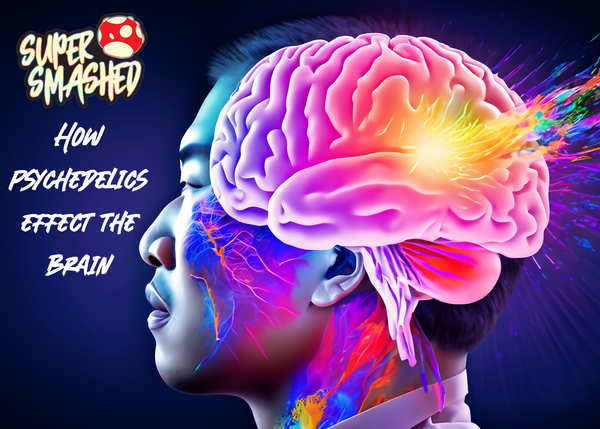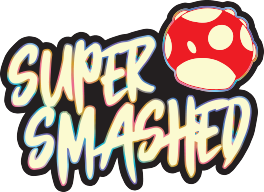
The Psychedelic Renaissance: Unveiling Psilocybin's Impact on the Brain and Mood
Introduction
The mental health industry is rediscovering the potential of psychedelics, specifically psilocybin from magic mushrooms, due to its significant impact on the mind. This natural compound is currently at the forefront of psychiatric research as it offers promising prospects for treating various mental health issues. Psilocybin can be used for micro-dosing or controlled therapeutic purposes, and it presents a groundbreaking approach to improving cognitive and emotional well-being. This blog post aims to explain the chemical process of psilocybin in the brain and highlight its potential to promote elevated moods, happiness, and a deeper understanding of oneself.
Understanding Psilocybin and Its Psychedelic Effects
Psilocybin, the psychoactive compound found in over 200 species of magic mushrooms, has captivated human curiosity for centuries. Upon consumption, psilocybin is converted into psilocin, its active form, which mirrors the serotonin molecule, playing a pivotal role in how we experience mood, anxiety, and happiness. This similarity allows psilocin to bind with serotonin receptors in the brain, particularly the 5-HT2A receptors, initiating a cascade of psychological effects. These effects range from visual and sensory distortions to profound shifts in mood and thought, often leading to insights and emotional breakthroughs. By understanding the mechanisms of psilocybin, researchers aim to harness its potential for therapeutic purposes.
How Psilocybin Interacts with the Brain
Psilocybin's interaction with the brain is a complex symphony, altering consciousness and perception in ways that have intrigued scientists and psychologists alike. The compound's affinity for the 5-HT2A receptor plays a crucial role in its psychedelic effects. This interaction leads to a decrease in the default mode network (DMN) activity, an area of the brain associated with self-reflection, thought patterns, and the ego. The modulation of the DMN by psilocybin may contribute to the substance's ability to produce life-altering experiences, offering users new perspectives on their lives and mental health conditions. The suppression of the DMN is also linked to the drug's potential to treat conditions like depression, where patients often experience rumination and negative self-thoughts.
Psilocybin and Neuroplasticity
Beyond the immediate psychedelic experience, psilocybin's impact on neuroplasticity offers long-term benefits for the brain's structure and function. By promoting the growth and development of neural connections, psilocybin facilitates a more adaptable and resilient brain. This enhanced neuroplasticity can lead to improvements in learning, memory, and cognitive flexibility, offering hope for individuals suffering from mental health conditions that conventional medicine struggles to address. The role of psilocybin in neurogenesis and synaptic plasticity underscores its potential as a powerful tool for brain health and mental wellness.
Elevating Mood and Enhancing Well-being
The capacity of psilocybin to elevate mood and foster a sense of well-being is among its most valued effects. Users often report profound joy, connectedness, and a greater appreciation for life following psilocybin experiences. These emotional and psychological benefits are thought to stem from psilocybin's ability to recalibrate the brain's reward and emotion centers, offering a fresh perspective and alleviating the weight of depression and anxiety. The exploration of psilocybin as a catalyst for positive mental health shifts is a beacon of hope for many seeking alternatives to traditional psychiatric medications.
Therapeutic Applications and Future Directions
There is a growing interest in the therapeutic applications of psilocybin as more research is conducted. Psilocybin-assisted therapy is being used to treat several mental health conditions, such as major depressive disorder, and to alleviate the existential anxiety that comes with terminal illness. The FDA has classified psilocybin as a "breakthrough therapy" for depression, emphasizing its potential to transform the field of mental health treatment. Furthermore, integrating psilocybin into psychiatric practice not only expands treatment options but also enhances our understanding of the mind and consciousness.
Conclusion
The transformation of psilocybin from an ancient natural remedy to a modern mental health solution demonstrates its profound impact on the brain and psyche. By promoting neuroplasticity, regulating mood, and providing new perspectives on life, psilocybin can revolutionize mental health. As research continues to unveil the mysteries of how psilocybin affects the brain, its ability to foster healing, happiness, and transformation appears limitless. The psychedelic renaissance is not only changing our approach to mental health but also reshaping our understanding of the mind. The transformation of psilocybin from an ancient natural remedy to a modern mental health solution demonstrates its profound impact on the brain and psyche. By promoting neuroplasticity, regulating mood, and providing new perspectives on life, psilocybin can revolutionize mental health. As research continues to unveil the mysteries of how psilocybin affects the brain, its ability to foster healing, happiness, and transformation appears limitless. The psychedelic renaissance is not only changing our approach to mental health but also reshaping our understanding of the mind.
